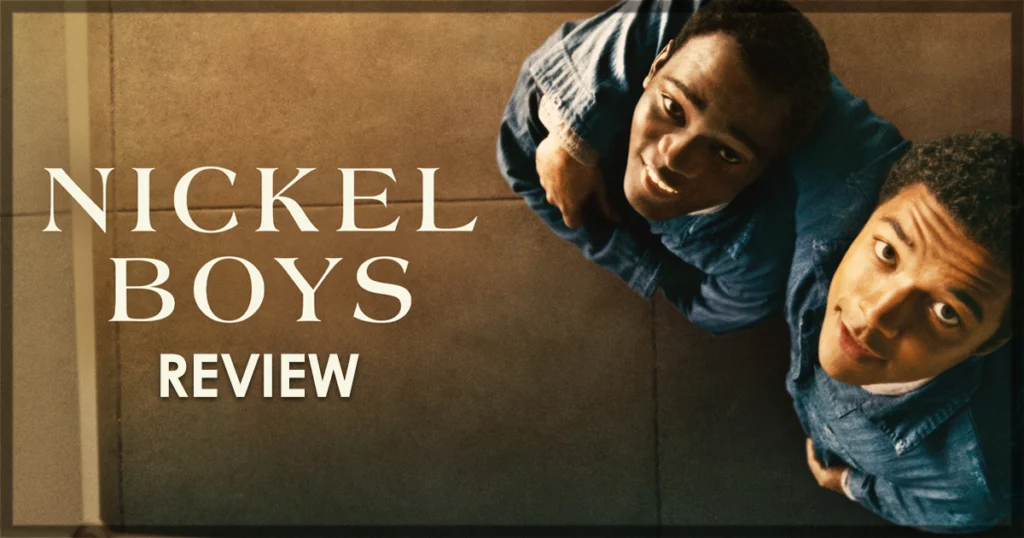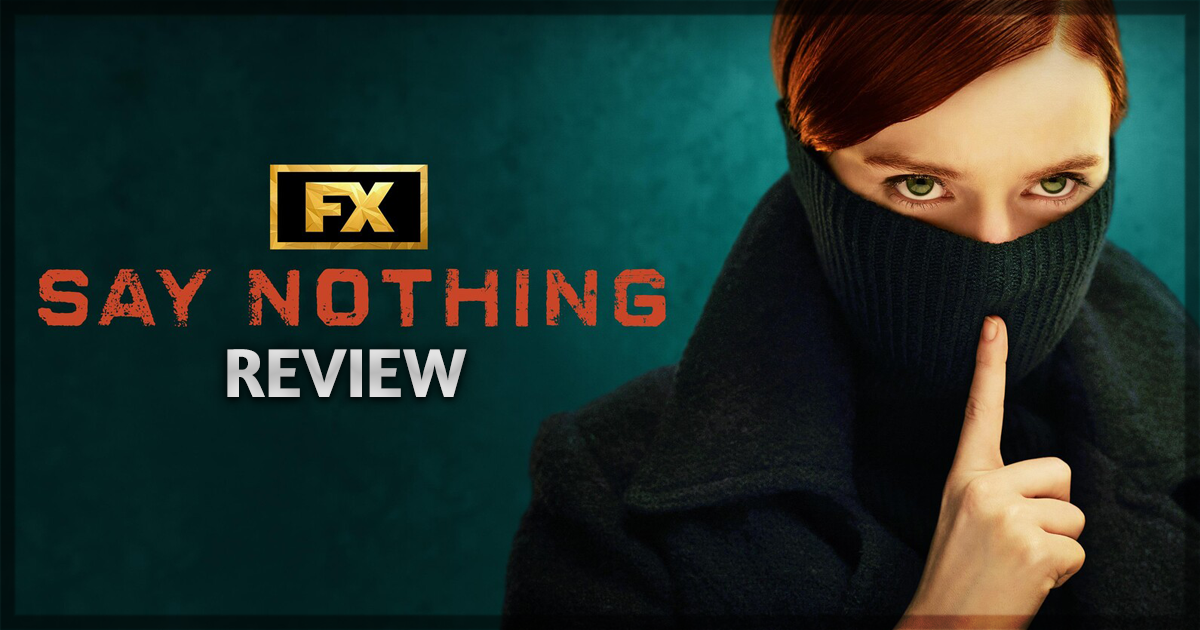Based on the bestselling book by Patrick Radden Keefe, Say Nothing rockets viewers back to 1972 Belfast with an explosive opening scene. The miniseries employs different framing devices to Keefe’s nonfiction tome, but both work to great effect. Widowed mother of ten Jean McConville (Judith Roddy) sends her eldest daughter out to the chippy to pick up dinner and escapes the family bustle to have a bath. Her children answer a knock on the door expecting dinner, only to find an armed crew looking for their mother. Some are masked, others are recognisably fellow neighbours of Divis Flats. Jean is bundled into a car and never seen by her family again.
Soon, four key players emerge in the tale: IRA operatives Dolours Price (Lola Petticrew in her teens and twenties, Maxine Peake later in life) and her younger sister Marian (Hazel Doupe), fearsome D Company leader Brendan Hughes (Anthony Boyle and Tom Vaughan-Lawlor), and master tactician Gerry Adams (Josh Finan and Michael Coglan). Double-casting many characters as older and younger versions of themselves is effectively done throughout Say Nothing. These four figures all played key roles – with some caveats, discussed later in this review – in the resurgence of the Irish Republican Army as the Provisional IRA during the Troubles. They all, in some way, connect to the disappearance of Jean McConville, rumoured to have been a “tout” – an informer passing IRA members and movements to the British. Dolours Price and Hughes shared their memories of the time with a researcher at Boston College, with the caveat that their testimonies would be anonymous and remained sealed until after their deaths. The searing, often ugly honesty is the material that drives much of Say Nothing.
The miniseries’ plot is narratively coherent within its many decades, with the McConville disappearance and testimonies from the Boston College project interrupting an otherwise straightforward chronological narrative. The snappy, confident editing ensures that urgency and energy, be that in a street battle or just a night at the pub with friends, remain constants of the show’s pacing. The meticulous production design, alive with colourful clothes and the excitement of youth, evokes an era beyond the bomb threats and constant UK military presence.
Though constrained by the limited scope and detail available in a nine-episode miniseries, Say Nothing is a balanced, clear-eyed look at a complicated time of hard decisions. Some hard decisions, however, are motivated by more altruistic factors than others. The American Keefe has been accused in some quarters of over-sympathising with the Irish Republican movement, but the show’s hand is balanced. Quick-field executions go hand-in-hand with the futility of nonviolence against a mob with stones. Horrors are horrors, no matter who inflicts them, and the disappearances are particularly cruel in denying families closure. But enough is shown in the Price family’s own history to justify action, if not its particulars.
With the exception of Peake and Rory Kinnear, who makes a brief appearance as a counterintelligence specialist brought in from Britain’s even-more-brutal quashing of rebellion in Kenya, the cast has no star names but plenty of stars in the making. The West Belfast-born Petticrew makes Dolours Price a keenly intelligent and outspoken woman whose conviction never wavers, though Peake captures a new facet when she assumes the role. Boyle, in his fourth high-profile miniseries of the year and the first to use his own Belfast accent, crackles with good humour and vitality, his own care and calculation in service of the case taking on a different flavour to that of the Price sisters and Adams.
Ultimately, Say Nothing is incomplete – even a personal history of the Troubles cannot be fully fleshed out in nine episodes – but to the writers’ and directors’ credit, the narrative and interlocking lives are coherently presented with excision of events and revelations rather than the simplification thereof. Keefe’s book is still essential reading – it is immensely gripping and goes into more details of Adams’ strategies, notably around the men’s prison protests (one such excision from the television show) and the symbolism and significance of political imprisonment with its special status and rights (touched upon briefly in the Price sisters’ prison experiences). The book also explores the optimism and good intentions, yet ultimate flaws in data collection and protection, that marred Boston College’s testimonial project; here, the tapes seem to run parallel to the story of Jean McConville instead of intersecting in vital, ruinous ways.
Almost every episode of Say Nothing ends with a disclaimer stating that Gerry Adams has consistently denied membership of the IRA and involvement in its activities. Sometimes, other disclaimers are added; if nothing else, the choice to re-enact an event Keefe is extremely careful to frame as his own deduction in his reportage necessitates this. When accounts conflict, however, it is counterproductive to hedge accounts in the telling. Say Nothing is stronger for committing to the views captured in the tapes and books; with history still unfinished and untold, new accounts may give rise to a new telling later on.
Say Nothing may not be as good as the book – few works are – but it is masterful historical television that hopefully will whet appetites to learn more about the nuances, abuses of power, and still-unsolved crimes of this time.
Say Nothing premieres on Hulu on November 14, 2024.
Learn more about the show, including how to watch, at the official site.
You might also like…


